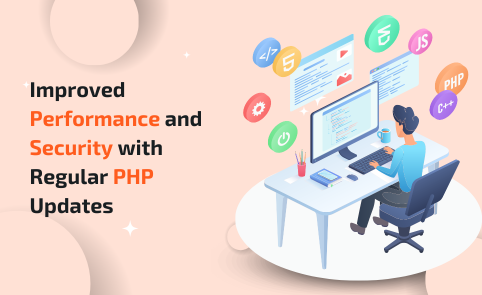Regular updates are crucial for maintaining the performance and
security of any software, and PHP is no exception. PHP, a popular
server-side scripting language, powers a significant portion of the
web. With each update, PHP brings new features, bug fixes, and
security enhancements.
In this blog post, we will talk about why it's important to keep
your PHP updated. This can help make your web applications perform
better and be more secure.
In today's digital age, websites and web applications have become an
integral part of our lives. However, with the increasing complexity
of these platforms, the risk of vulnerabilities and security
breaches has also grown. One crucial aspect of maintaining a secure
website is keeping the underlying programming language up to date.
